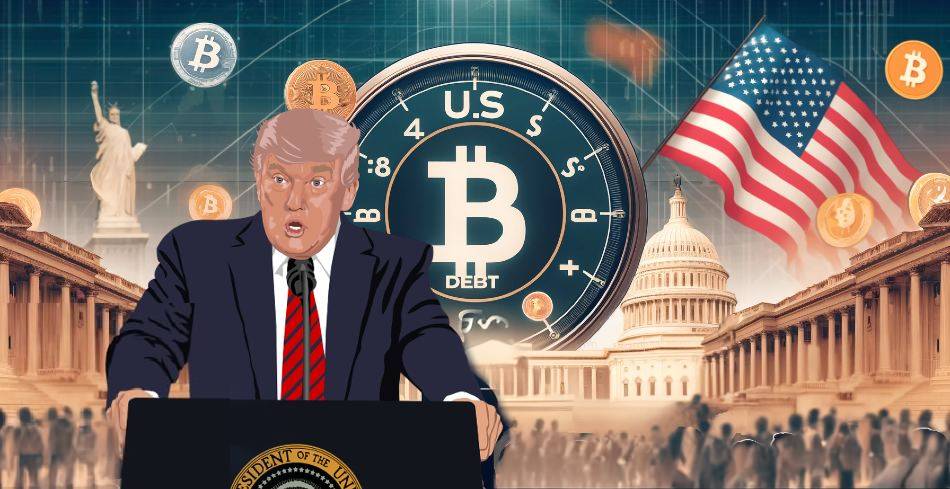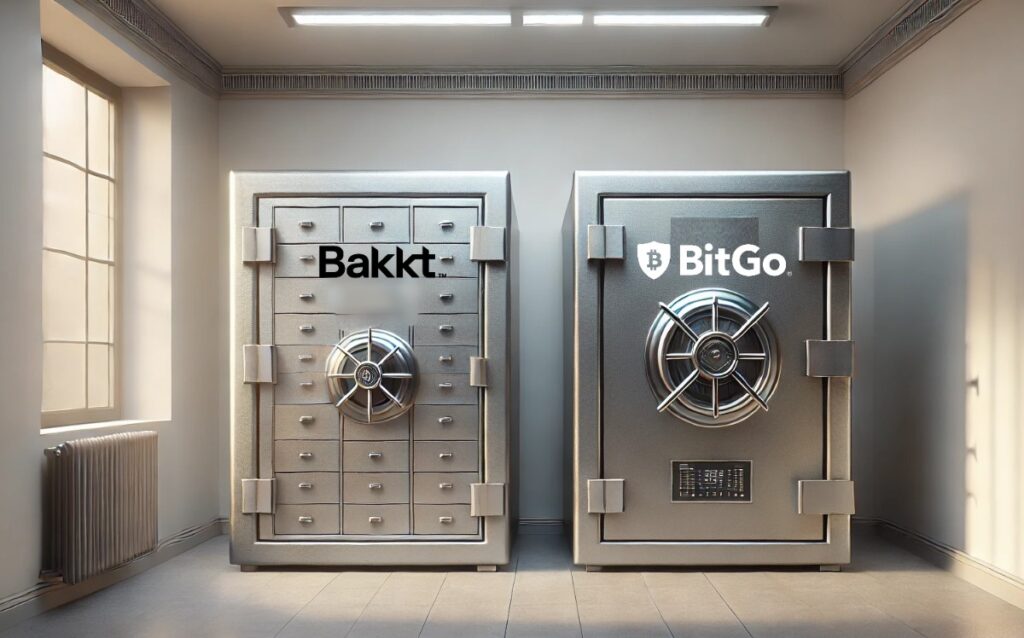It’s been reported that former President Trump has inquired about Bitcoin’s potential to assist in paying down the US national debt. The funny thing is, it’s not as crazy as it sounds.
David Bailey, CEO of Bitcoin Magazine and a Trump campaign cryptocurrency aide recently said that the first time he met Trump, the ex-president asked if Bitcoin could do anything about America’s $35 trillion debt.
While many might scoff – is it really that bad of an idea? In this article, we will delve into the feasibility of using Bitcoin to alleviate the national debt burden and explore the practical implications of such a plan.
Bitcoin and US National Debt in Context
The United States national debt has increased significantly over the past 20 years. According to data from the United States Department of the Treasury, the national debt has grown from approximately $5.7 trillion in 2002 to around $34 trillion today. The national debt is a significant concern for policymakers, as it impacts the country’s economic stability, inflation rates, and even the value of the US dollar.
Bitcoin’s Role in the Proposal
Bitcoin, with its limited supply of 21 million coins, is often touted as a potential solution for managing debt. The idea is that if the US government were to use a some of its Bitcoin reserves to pay off a portion of the national debt, it could potentially reduce the burden on taxpayers and stabilize the economy. However, there are several crucial factors to consider.
- Bitcoin’s Market Value: The current market value of all Bitcoin in existence is approximately $1.2 trillion. This means that even if the entire Bitcoin supply were used to pay off the national debt, it would only cover a small fraction of the total.
- Limited Supply: The limited supply of Bitcoin, capped at 21 million coins, means that it cannot be used to pay off the entire national debt. The supply is fixed, and new coins are not being created at the same rate as the national debt is growing (currently around $1.215 trillion dollars a year).
- Volatility: Bitcoin’s value is highly volatile, which means that its price could fluctuate significantly over time. This volatility makes it difficult to predict the actual value of Bitcoin in the future, making it challenging to use it as a reliable means of paying off debt.
Bitcoin and Government Debt – A Longer Term Approach
While it’s clear that the current market cap of all the Bitcoin currently in existence wouldn’t make much of a dent in the US debt, there is some merit to the argument that the US government could start stockpiling Bitcoin in the same way many governments worldwide are attempting to grow their gold reserves.
Consider for example a lower number – what if Bitcoin was only to pay off half the national debit – around $17 trillion dollars. Then the numbers start to get interesting. To calculate the value that Bitcoin would need to reach in order to pay that off, let’s assume all 21 million Bitcoin have already been minted. In that case, to pay off $17 trillion dollars in debt, a single Bitcoin would only need to be worth somewhere around $750,000.
There is no shortage of crypto opinion leaders who have predicted a Bitcoin price of in excess of a million dollars. From John McAfee to IBM’s Jesse Lund, to Raoul Pal and Anthony Pompliano – all of them have at some time or another predicted Bitcoin at $1 million or more – and they weren’t talking 100 years from now either.
US Debt In A Global Perspective
If the focus is shifted from the US to other countries, the prospect of Bitcoin as a tool for national prosperity becomes even more interesting. Consider for example El Salvador. Bitcoin is legal tender there and the government is actively mining and acquiring Bitcoin. El Salvador’s national debt is only around $21 billion. Currently, the country’s treasury holds 5,764 Bitcoin, worth $396.2 million. If the price of Bitcoin was to reach $1 million, El Salvador could pay off a quarter of its national debt.
US corporation MicroStrategy currently holds 214,246 Bitcoin. If the Bitcoin price was only to exceed $100,000, MicroStrategy could easily pay off El Salvador’s national debt. Other examples of debts that could be candidates for a Bitcoin paydown include;
- Seychelles: Approximately $1.1 billion USD
- Solomon Islands: Around $700 million USD
- Sierra Leone: Roughly $3.1 billion USD
- Fiji: About $9 billion
- Tanzania: About $36 billion USD
- Vietnam: Around $143 billion USD
Conclusion
While the idea of using Bitcoin to pay off national debts is intriguing, many believe it’s not a viable solution for reasons including its limited supply, its price volatility and its potential impact on the value of national currencies.
That said, there are few people who don’t think the Bitcoin price is potentially going much higher. And surely many sovereign governments have the ability to put some Bitcoin on their balance sheets, just as they do gold – even if only to hedge their bets over the longer term. In that regard, the Trump inquiry about Bitcoin’s potential to ‘do something about’ the US national may have been more prescient than even he realized.
Partial Image credit: Heblo from Pixabay







